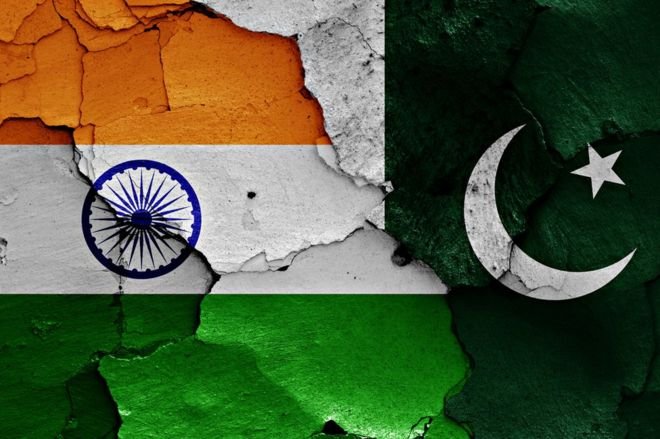As India and Pakistan celebrate 70 years of independence, Andrew Whitehead looks at the lasting legacy of the Partition of British India, and the turmoil and trauma which marred the birth of the two nations.
It's about 700km (430 miles) from Delhi to Islamabad - less than the distance between London and Geneva. A short hop in aviation terms.
But you can't fly non-stop from the Indian capital to the Pakistani capital. There are no direct flights at all. It is only one of the legacies of seven decades of mutual suspicion and tension.
Take another example: cricket.
India and Pakistan played each other a few weeks ago in the final of the Champions' Trophy. Both countries are cricket crazy.
Partition of India in August 1947
Perhaps the biggest movement of people in history, outside war and famine.
Two newly-independent states were created - India and Pakistan.
About 12 million people became refugees. Between half a million and a million people were killed in religious violence.
Tens of thousands of women were abducted.
This article is the first in a BBC series looking at Partition 70 years on.
However, the game was played not in South Asia, but in London. India and Pakistan don't play cricket in each other's countries any more, although they have met in one-day matches around the world, including in countries in their region like Bangladesh and Sri Lanka.

Hi! I am a robot. I just upvoted you! I found similar content that readers might be interested in:
http://www.bbc.co.uk/news/world-asia-40643413
Congratulations @mohammad1! You have completed some achievement on Steemit and have been rewarded with new badge(s) :
Click on any badge to view your own Board of Honor on SteemitBoard.
For more information about SteemitBoard, click here
If you no longer want to receive notifications, reply to this comment with the word
STOP